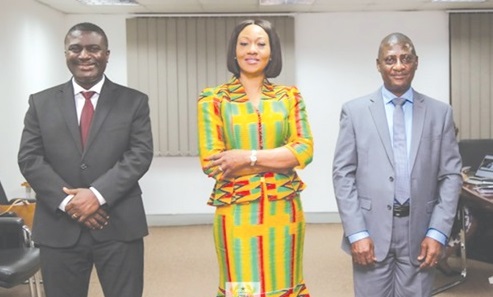Ghana is rightly celebrated as a beacon of democracy in Africa, boasting a history of peaceful transitions of power and credible elections since the establishment of the Fourth Republic in 1992/1993.
However, recent events have raised significant concerns about democratic backsliding, the excessive concentration of power and the erosion of public trust in key institutions, including the Electoral Commission (EC).
This anxiety, articulated by civil society and constitutional experts alike, was notably echoed in the May 26, 2025 edition of the Daily Graphic, where the Ghana Catholic Bishops’ Conference (GCBC) made a compelling case for reform.
Their message is crystal clear: securing the independence of the EC and strictly regulating campaign financing are essential to safeguarding Ghana’s democratic future.
Public confidence
The Bishops have articulated profound concerns shared by many Ghanaians regarding the appointment process for Electoral Commission (EC) officials.
The existing system, which allows the President to appoint all members unilaterally, undermines the commission's independence and erodes public confidence.
This arrangement has rendered the EC susceptible to partisanship, especially when the appointments are made by a sitting President whose party benefits from the electoral outcomes.
Alarmingly, the very politicians who appoint EC officials often tarnish their reputation when in opposition, leading to a concerning decline in public trust.
It is imperative to acknowledge that the Bishops' call for reform is both timely and necessary.
To restore credibility, a restructured framework for EC appointments should be considered.
This could entail a more inclusive approach involving Parliament, trade unions, civil society, religious organisations and professional bodies, thereby enhancing transparency and fostering greater independence from executive influence.
Such a shift would empower the EC to function without undue pressure and exposure to political interference.
Protests
A striking example of the EC's vulnerability to political interference is the controversial dismissal of the former EC Chairperson, Charlotte Osei, in 2018 by the previous government.
Framed as a legal action due to alleged procurement breaches, many observers, both local and international, perceived it as politically motivated, particularly given the timing and opacity surrounding the dismissal process.
This incident sent shockwaves through civil society and sparked widespread protests, drawing condemnation from advocates of transparency, including the Ghana Bar Association and opposition leaders.
More concerningly, it tarnished Ghana’s international standing.
As a consequence of this episode, the nation’s rank on key global democracy indices, notably the Economist Intelligence Unit’s Democracy Index, saw a decline, highlighting increased concerns over institutional independence and executive overreach.
Mrs Charlotte Osei's case has illuminated the precarious nature of EC independence within the current constitutional framework.
The President's unilateral power to hire and dismiss EC officials raises the spectre of political manipulation, especially during election periods.
This underscores the urgent need for structural reforms that insulate the EC from partisan influences and protect its officials from arbitrary dismissal.
Campaign financing
In addition to reforming the appointment process, there is a pressing need for robust campaign finance regulations.
Clear guidelines governing campaign donations and expenditures, coupled with independent auditing mechanisms, are essential.
The unregulated nature of campaign financing has fostered corruption, allowing elites to capture politics and marginalising the voices of ordinary citizens.
Without reform, financial influence will continue to overshadow Ghanaian politics, undermining the electorate's will.
The politicisation of the EC and the detrimental influence of money in politics pose critical threats to Ghana’s democratic integrity.
According to Article 70 of the 1992 Constitution, the President appoints the EC Chairperson, deputies and members, albeit in consultation with the Council of State.
However, this consultative process is non-binding, leading to a scenario where EC appointments often devolve into partisan battlegrounds.
EC appointments
To address these issues, we could implement a multiparty, consultative framework for EC appointments, involving diverse stakeholders from Parliament, civil society, traditional leaders, religious leaders, and independent professional bodies.
The objective would be to depoliticise the appointment process and restore public faith in the Commission. Additionally, introducing fixed, clearly defined tenures for EC officials and strengthening protections against arbitrary dismissal would be crucial in preventing recurrences of incidents such as the Mrs Charlotte Osei case.
The prevailing influence of financial interests within Ghana's political landscape further complicates these challenges.
Research indicates that parliamentary candidates can spend upwards of substantial amounts (estimated at USD 600,000) during campaigns, compounding issues of inequality and diminishing the prospects for fair competition.
For the presidential elections, it is estimated to be around USD 100 million.
Some of the questions to ask are: How do political candidates and parties raise the funds needed for their campaigns?
What are the salaries and allowances of Members of Parliament and the President in Ghana? I leave that to your guess.
Reforms
Effective reforms targeting both the institutional integrity of the EC and the regulation of campaign finances are fundamental to revitalising Ghana’s democratic principles.
Only then can we truly honour the nation’s commitment to upholding the democratic ideals that have defined its journey since independence.
The writer is a political scientist.

